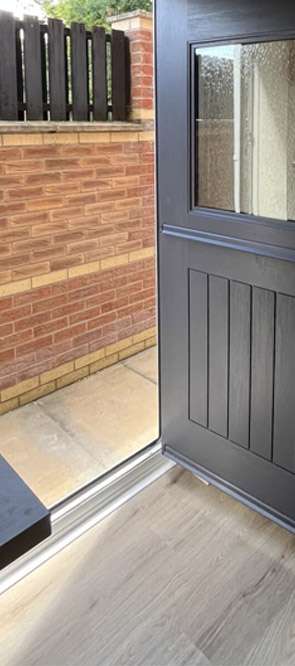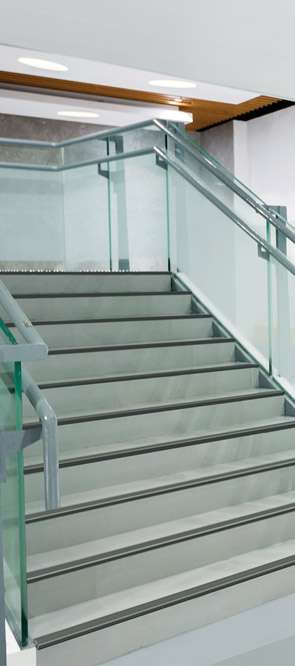
The Best Uses for Polypropylene Webbing in DIY and Industrial Projects
Polypropylene Webbing | Strong, Weather-Resistant Straps in the UK has quickly risen to become one of the most reliable materials used across DIY and professional sectors. Engineered for durability, strength, and weather resistance, this premium product range includes a wide selection of sizes and lengths, such as the 1m Long Polypropylene Webbing Strap Tape, 5m Long Polypropylene Webbing Strap Tape, 10m Long Polypropylene Webbing Strap Tape, and specialised PP5 Tapes in 10mm, 15mm, and 50mm widths.
Made from high-quality polypropylene and designed to endure harsh UK weather, these products provide exceptional tensile strength, moisture resistance, and long-lasting performance. Whether you're reinforcing garden furniture, crafting outdoor gear, repairing upholstery, or securing heavy loads in industrial environments, polypropylene webbing continues to be a dependable and adaptable choice. The wide range of available sizes, colours, and thicknesses ensures that both hobbyists and industrial users find the right webbing for their specific needs. From lightweight crafting tasks to heavy-duty construction projects, polypropylene webbing products offer unmatched versatility.
DIY Applications Using Lightweight Polypropylene Webbing Products
DIY enthusiasts can benefit greatly from the wide selection of polypropylene webbing options available today. These products are particularly favoured for their durability, affordability, and ease of use. They can be cut with basic tools, sewn with domestic machines, and attached with simple hardware—making them beginner-friendly while still offering professional results. Polypropylene webbing also withstands humidity, UV exposure, and general wear, which is ideal for DIYers working on both indoor and outdoor projects. Whether you're upgrading everyday household items or creating entirely new accessories, polypropylene webbing is one of the most flexible materials to work with.
A wide variety of affordable and durable polypropylene webbings is available in the UK, and you can explore the full collection here: Polypropylene Webbing Category.
Ideal for Small and Medium DIY Projects: 1m, 5m, and 10m Strap Tapes
The 1m, 5m, and 10m Long Polypropylene Webbing Strap Tapes provide excellent versatility for everyday household projects where smaller quantities are required. These biodegradable and eco-friendly webbings are available in five widths—20mm, 25mm, 30mm, 40mm, and 50mm—giving creators the freedom to choose the perfect size for their project.
These lengths are especially useful for:
Bag straps and handles
Curtain tie-backs
Securing gardening tools
Straps for small furniture reinforcement
Craft projects such as keychains or organisers
Light DIY tie-downs for car boots or bike racks
Because these webbings are lightweight, smooth in texture, and easy to work with, they suit both beginners and experienced DIY creators who want a clean, high-quality finish without requiring industrial tools.
Comparison Table 1: Small & Medium DIY Webbing Options
| Product Name | Width Options | Eco-Friendly | Ideal For | Length Options | Why Choose It |
|---|---|---|---|---|---|
| 1m Long Polypropylene Webbing Strap Tape | 20mm–50mm | Yes | Small crafts, bag repairs, household use | 1 metre | Perfect for quick fixes or testing designs |
| 5m Long Polypropylene Webbing Strap Tape | 20mm–50mm | Yes | Garden use, light furniture repairs | 5 metres | Economical for mid-sized projects |
| 10m Long Polypropylene Webbing Strap Tape | 20mm–50mm | Yes | Outdoor gear, multiple DIY tasks | 10 metres | Best for users who need more material at once |
Perfect for Crafting and Precision Work: PP5 Tape (10mm & 15mm)
When it comes to more precise or decorative DIY projects, the 10mm and 15mm PP5 Polypropylene Webbing Straps offer outstanding performance. With a fine, smooth texture and excellent tensile strength, they are ideal for projects that require a narrower, more elegant finish.
Common uses include:
-
Pet collars
-
Lightweight pet harnesses
-
Decorative crafts
-
Chair seat weaving
-
Fashion accessories and straps
-
Outdoor gear enhancements
-
Replacing or reinforcing narrow straps
These PP5 tapes are available in a choice of colours, allowing creators to match their designs with precision. Sold per metre and cut to order, they provide excellent value while allowing flexibility for one-off crafts or repeat production.
Industrial Applications Using Heavy-Duty Polypropylene Webbing
Industrial environments demand materials that can handle significant stress, constant wear, and exposure to tough conditions. That’s where heavier, wider polypropylene webbing products—especially the robust 50mm PP5 Tape—become essential.
Thanks to its exceptional strength and reliability, polypropylene webbing is widely used in heavy-duty operations across logistics, construction, manufacturing, transportation, marine sectors, and agriculture. Its lightweight nature reduces handling effort while still offering a powerful load-bearing capacity.
Industries rely on polypropylene webbing not only for strengthening equipment but also for ensuring safety, securing cargo, and stabilising structures.
50mm PP5 Tape for Construction, Manufacturing, and Logistics
The 50mm PP5 Tape is the most heavy-duty option in the polypropylene range. With a choice of 12 colours, biodegradable construction, and a durable 0.9cm thickness, it stands out as a reliable industrial-grade webbing.
It is exceptionally well-suited for:
- Pallet securing
- Cargo and load-bearing straps
- Industrial packaging reinforcement
- Scaffolding support
- Heavy equipment tie-downs
- Agricultural applications
Its resistance to moisture, chemicals, UV exposure, mildew, and abrasion makes it ideal for rigorous industrial settings where reliability is crucial.
Comparison Table 2: Industrial Polypropylene Webbing Options
| Product Name | Width | Thickness | Colour Options | Best For | Strength Level |
|---|---|---|---|---|---|
| PP5 Tape – 10mm | 10mm | 0.9cm | 6 Colours | Crafts, pet accessories, light straps | Medium |
| PP5 Tape – 15mm | 15mm | 0.9cm | 8 Colours | Precision applications, decorative work | Medium-High |
| PP5 Tape – 50mm | 50mm | 0.9cm | 12 Colours | Construction, pallet straps, machinery tie-downs | Very High |
Benefits Across Construction Sites
On UK construction sites, safety and durability are non-negotiable. The 50mm PP5 Tape is widely used due to its high strength-to-weight ratio and robust performance. Workers value its ease of handling compared to metal chains or cables, while site managers favour its reliability under pressure.
Common construction applications include:
-
Bundling pipes, timber, and building supplies
-
Supporting and stabilising temporary structures
-
Contributing to fall-protection safety harness systems
-
Securing materials during transportation
-
Creating temporary fencing and barriers
Its lightweight design reduces strain on workers while retaining a powerful load capacity suitable for demanding construction tasks.
Outdoor, Agricultural, and Marine Usage Across All Webbing Types
Polypropylene Webbing products—from the lightweight 10mm PP5 Tape to the heavy-duty 50mm version—excel in outdoor, agricultural, and marine environments due to their moisture-resistant and rot-proof properties.
Because polypropylene naturally floats, absorbs very little water, and resists mildew, it is ideal for:
-
Boat covers
-
Deck equipment securing
-
Farm equipment straps
-
Livestock harnesses
-
Shading and greenhouse structures
-
Outdoor furniture reinforcement
-
Camping equipment
-
Wet-environment storage systems
These characteristics make polypropylene webbing superior to cotton, jute, and some types of nylon when used outdoors or in constantly damp environments.
Conclusion
Polypropylene Webbing products—including Polypropylene Webbing | Strong, Weather-Resistant Straps in the UK alongside the 1m, 5m, and 10m Strap Tapes and the versatile PP5 Tape range—offer one of the most comprehensive and adaptive material solutions for both DIY and industrial users in the UK. Whether you're a craft maker, outdoor enthusiast, DIY hobbyist, or professional in construction or manufacturing, polypropylene webbing provides unbeatable benefits:
- Exceptional durability
- Impressive tensile strength
- Lightweight and flexible handling
- Eco-friendly and biodegradable materials
- Suitable for indoor, outdoor, and industrial use
- Wide selection of widths, lengths, and colours
From creative crafting tasks to stabilising heavy machinery, polypropylene webbing products deliver long-lasting reliability—perfectly suited to the UK’s demanding weather and working conditions. If you're ready to enhance your projects with strong, weather-resistant, and purpose-designed webbing, explore the complete range of polypropylene webbing products and upgrade your next creation with confidence.
Visit our homepage to start exploring more high-quality materials and supplies for your projects

